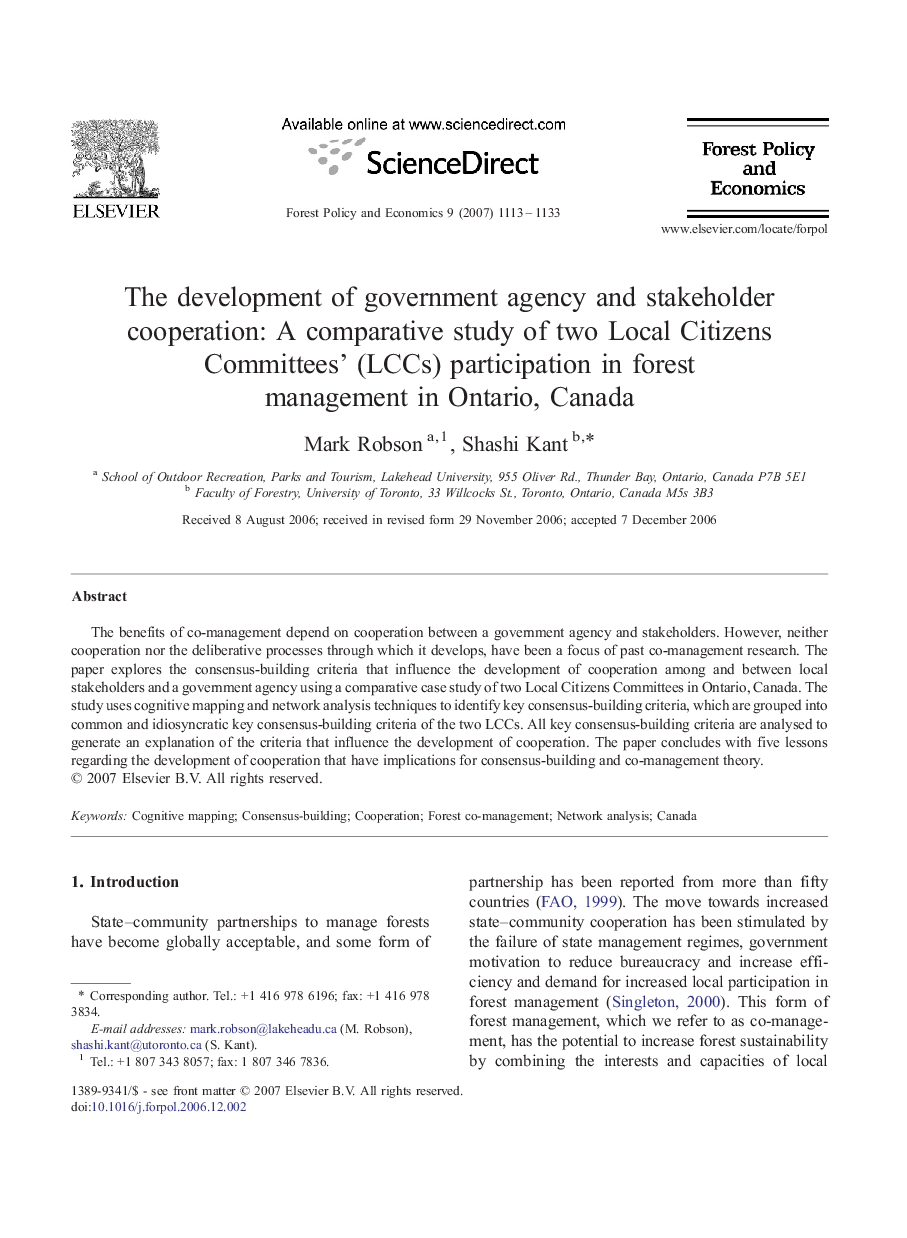| Article ID | Journal | Published Year | Pages | File Type |
|---|---|---|---|---|
| 91774 | Forest Policy and Economics | 2007 | 21 Pages |
The benefits of co-management depend on cooperation between a government agency and stakeholders. However, neither cooperation nor the deliberative processes through which it develops, have been a focus of past co-management research. The paper explores the consensus-building criteria that influence the development of cooperation among and between local stakeholders and a government agency using a comparative case study of two Local Citizens Committees in Ontario, Canada. The study uses cognitive mapping and network analysis techniques to identify key consensus-building criteria, which are grouped into common and idiosyncratic key consensus-building criteria of the two LCCs. All key consensus-building criteria are analysed to generate an explanation of the criteria that influence the development of cooperation. The paper concludes with five lessons regarding the development of cooperation that have implications for consensus-building and co-management theory.
